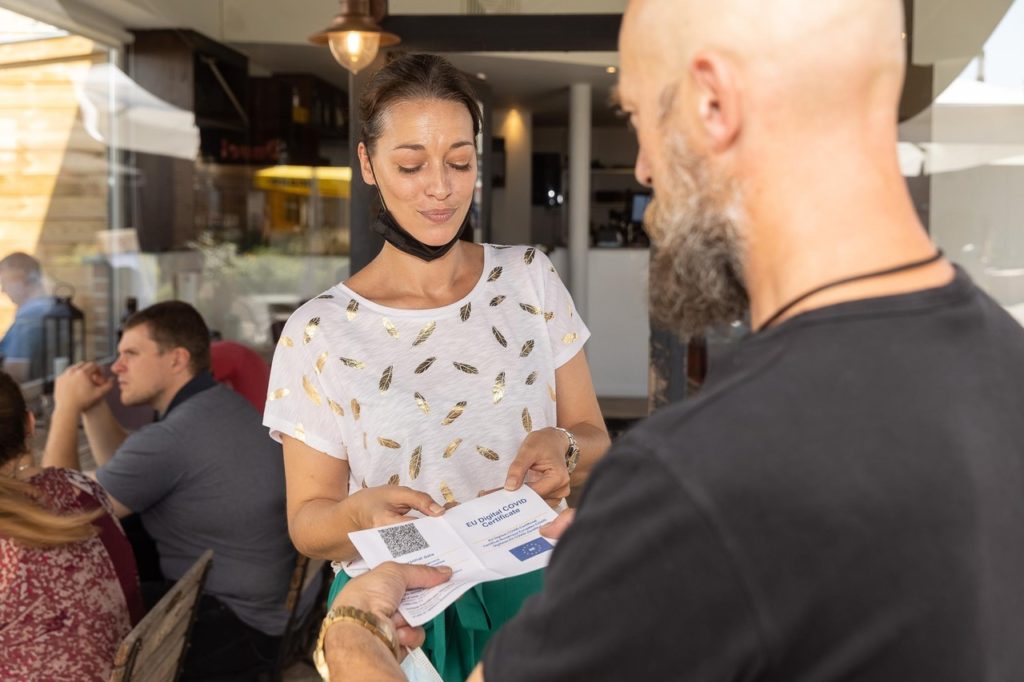As coronavirus cases continue to rise across Europe, various countries including Austria, Germany and the Netherlands, are looking to tighten measures.
Amid a worsening situation, Austria's government announced it is now mandatory to show either proof of full vaccination or past Covid-19 infection to enter bars, restaurants, nightclubs and events as well as gyms, cultural institutions and hairdressers.
Previously, Austria, where more than 11,000 cases were reported, implemented so-called "entry tests" within the framework of the "3-G rule" -- meaning people had to prove they were vaccinated, recovered, or tested before they could enter certain indoor areas. However, as of 8 November, a 2G system is in place, meaning tests are no longer permitted as proof of admission in most cases.
In Germany, which implements the same entry test system as Austria, the Berlin senate announced on Thursday that cafes and restaurants without a terrace, as well as hairdressers and cinemas, will close their doors to unvaccinated people over the age of 18.
Related News
- 'Still too early' to take new federal measures, says Verlinden
- People who show fake Covid Safe Ticket or PLF now risk prison sentence
- Teleworking 'absolutely necessary' to avoid stricter measures
Starting from Monday, the 2G principle, which was already implemented for indoor dance parties in the city, will be applied to most indoor events, in all cultural facilities (including cinemas, theatres, museums and galleries), the hospitality sector's indoor spaces, and indoor sports facilities, among others.
The decision was announced amid rising coronavirus cases -- on Wednesday, the country recorded the highest number of infections since the start of the pandemic -- and a worsening situation in the hospitals, particularly in the capital region.
Meanwhile, the country's would-be chancellor Olaf Scholz has called a meeting with state premiers to decide new nationwide measures.
Both in Austria and in Berlin, the rules will not apply for people who have recovered from the virus, as this is covered by the 2G principle or people who cannot be vaccinated against the coronavirus for medical reasons. However, these people will still have to show a negative test result.
Possible lockdowns
Following advice from the Outbreak Management Team (OMT) in the Netherlands, which recorded 12,700 new infections on Wednesday, stricter measures still may be considered.
The caretaker cabinet is expected to announce a partial lockdown on Friday evening that will last three weeks, according to reports from broadcaster NOS.
During the lockdown, expected to start on Saturday evening, the hospitality industry and non-essential shops will have to close at 7:00 PM. There is also the advice to invite no more than four visitors at home.
Following the short lockdown, the OMT recommends that a QR code to enter certain establishments should only be given to people who are fully vaccinated or have recovered from the virus, in essence implementing the 2G principle.
Covid-19 cases are also continuing to rise in Belgium. However, for now, politicians and health experts are mainly calling on people to return to teleworking and limit the number of close contacts they have.
The country's Consultative Committee is set to meet on Friday 19 November to discuss the epidemiological situation.
This article has been updated on Friday (12 November) morning to include the latest developments in the Netherlands.

